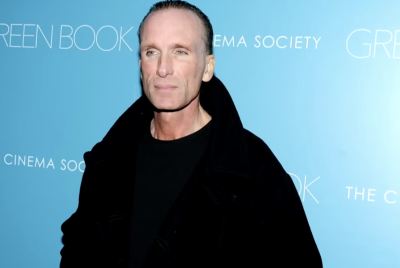GB News Suspends Kiwi Journalist Dan Wootton After Laurence Fox's Remarks on Show
After comments made by Laurence Fox during Dan Wootton's show on GB News, the channel released a statement that emphasised the importance of responsible journalism and the need to uphold ethical guidelines.

GB News, the British news channel known for its right-leaning perspective, has recently made headlines after suspending one of its presenters, Dan Wootton.
The suspension comes in the wake of controversial remarks, mostly targeted at Ava Evans, made by fellow presenter Laurence Fox on the show. The move has sparked intense debate regarding freedom of expression and the boundaries of acceptable discourse in the media.
Wootton, who has been a prominent figure in the media industry for years, found himself in hot water after inviting Laurence Fox onto his show for an interview. Fox, a British actor known for his controversial views on issues such as race and identity politics, did not hold back during the interview. He made comments that were widely perceived as offensive and inflammatory by many viewers.
The remarks made by Fox caused an immediate backlash and calls for action against GB News and its presenters. Critics argue that the channel, which was launched with the promise of providing a fresh perspective and unbiased reporting, has failed to live up to its stated principles. They claim that GB News is now becoming a platform for spreading divisive rhetoric and promoting harmful ideologies.
In light of the controversy, GB News took the decision to suspend Wootton, citing a breach of editorial standards. The channel's statement emphasised the importance of responsible journalism and the need to uphold ethical guidelines. GB News made it clear that they will not tolerate any form of hate speech or discrimination on their platform.
This move by GB News has been met with mixed reactions. Supporters of the channel argue that it demonstrates a commitment to maintaining high journalistic standards and ensuring that hate speech is not given a platform. They believe that by taking swift action against Wootton, GB News is sending a strong message that offensive remarks will not be tolerated.
However, there are also critics who view the suspension as an infringement on freedom of expression. They argue that by silencing Wootton, GB News is suppressing dissenting voices and censoring opinions that do not align with their own. These critics worry that this incident sets a dangerous precedent and could have a chilling effect on free speech in the media.
One argument made by those supporting the suspension is that platforms like GB News have a responsibility to fact-check and counterbalance potentially dangerous viewpoints. They argue that by providing a platform for divisive rhetoric, these media outlets are enabling the spread of misinformation and contributing to the polarisation of society. In this view, suspending Wootton is a necessary step towards maintaining journalistic integrity and protecting the public from harmful ideologies.
On the other hand, critics argue that the suspension sets a dangerous precedent for stifling dissenting voices and limiting free speech. They contend that in a democratic society, it is crucial to foster an environment where all opinions are heard, regardless of whether they are deemed controversial or offensive. The argument here is that rather than suppressing certain viewpoints, media outlets should engage in responsible and robust debate to challenge and dismantle harmful ideas.
As the dust settles on this episode, the wider implications for media freedom and responsible journalism continue to unfold. It is clear that striking a balance between freedom of expression and protecting society from harm is a delicate and nuanced task. While GB News' decision to suspend Dan Wootton may have sought to address concerns of hate speech, it has also opened up a wider conversation about the boundaries of acceptable discourse in the media landscape.
It remains to be seen how GB News will navigate this controversy and whether it will emerge as a platform that lives up to its initial promises of unbiased reporting. The channel's response to the suspension, as well as any further actions taken, will continue to shape public perception and influence the future of media discourse in the UK.






















